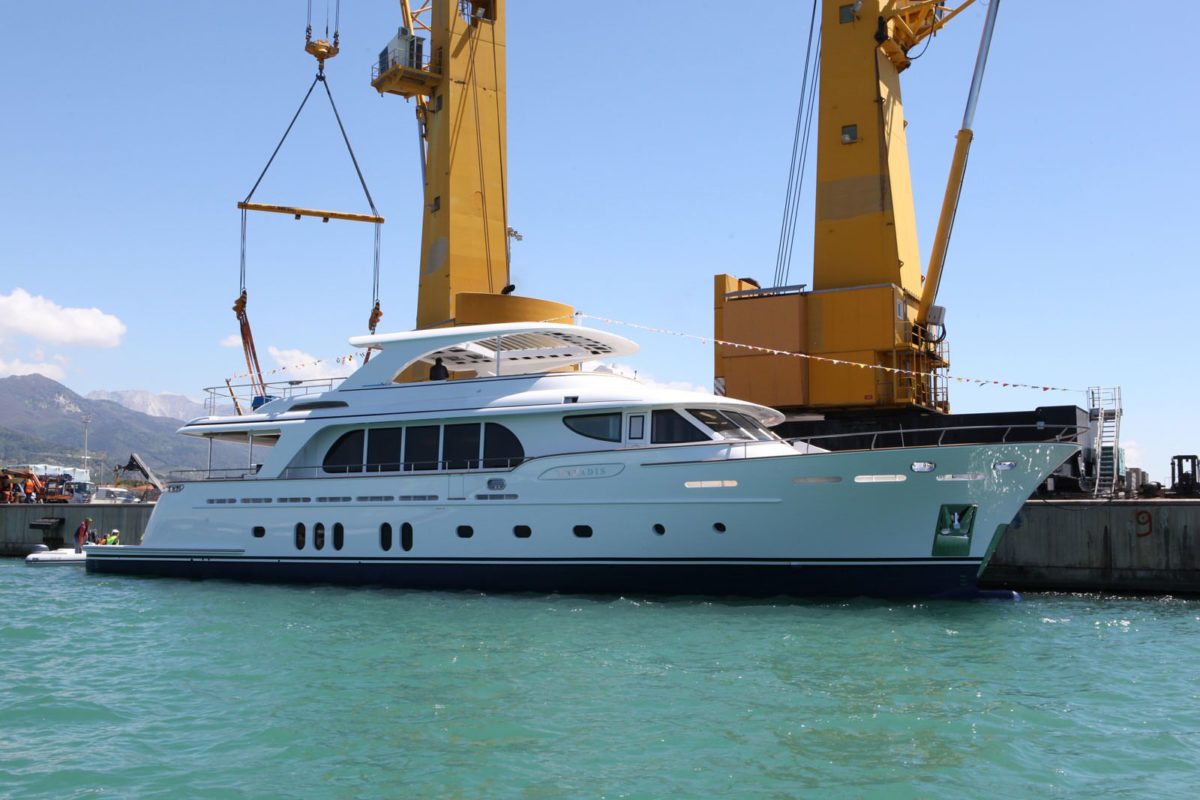The transport sector has been quick to embrace electrification with robust adoption of lithium-ion battery storage technology in mobility, and grid infrastructure is following suit. Now, it appears the maritime industry is getting in on the action.
IHS Markit energy storage research and analysis manager Julian Jansen confirms the trend, telling pv magazine “Aggressive carbon reduction goals by governments and industry, as well as the need to reduce fuel consumption and maintenance costs are driving the use of battery technology in marine vessels. Battery technology can be utilized either as part of hybrid systems or to fully electrify ships.”
Such progress was evident at the three-day Electric and Hybrid Marine World Expo, held in Amsterdam last week.
German battery manufacturer Akasol AG, for example, promoted its role in powering the new hybrid superyacht developed by Italian company Cerri Cantieri Navali S.p.A., with its first generation AKASystem 15 OEM battery system used in the vessel.
Battery powered yacht
Akasol said the yacht can travel short distances with an electric cruising peak of 8 knots and can anchor under electric power with the lithium-ion battery system for up to 17 hours. The German company also presented its second generation AKASystem OEM PRC, which it said will offer 33% more energy than its precursor and can achieve 2 C charge rates.
Nidec ASI S.p.A. was also steering toward clean power boating with the launch of new batteries for the sector at the exhibition in the Netherlands. Its new batteries differ from others on the market due to a “single large string” feature the company says will make it possible to reduce the number of modules in each battery pack and the number of converters.
“Marine transport alone produces 13% of greenhouse gas emissions and on current projections emissions are expected to rise by at least 50% by 2050 under a business-as-usual scenario,” said Anil Srivastava, CEO of storage provider Leclanché.
Automated manufacturing
At the expo, Leclanché SA announced it had hired industrial automation supplier Comau S.p.A. to build what it says is one of the world’s first automated manufacturing lines for lithium-ion battery production. The company said it would be able to automate its entire battery manufacturing process, from pouch cell stacking and welding to the final assembly of up to 32 different product configurations. in.Grid, Comau’s interactive internet of things and manufacturing execution system platform, will enable data management and manage the manufacturing line’s production, processes and maintenance monitoring.
Short distances for the short-term
While not as glamorous as electric yachts and cruise ships, other applications at the show focused on shorter journeys. Danfioss Editron Oy, for example, announced it had been commissioned by the Suomenlahden Telakka Oy shipyard to retrofit a diesel-electric drivetrain for a Finnish diesel-powered ferry that operates in the Turku archipelago.
“In the short-term, using battery technology will likely be most effective in inland and coastal shipping, including ferries, passenger transport and smaller goods transport,” said IHS Markit’s Jansen. “It is most advantageous where journeys are shorter and regular charging time can be factored into schedules.”
Shipping giant Maersk announced a plan in December to be carbon neutral by 2050, with a pledge at the COP24 climate change conference held in Katowice, Poland.
This content is protected by copyright and may not be reused. If you want to cooperate with us and would like to reuse some of our content, please contact: editors@pv-magazine.com.



By submitting this form you agree to pv magazine using your data for the purposes of publishing your comment.
Your personal data will only be disclosed or otherwise transmitted to third parties for the purposes of spam filtering or if this is necessary for technical maintenance of the website. Any other transfer to third parties will not take place unless this is justified on the basis of applicable data protection regulations or if pv magazine is legally obliged to do so.
You may revoke this consent at any time with effect for the future, in which case your personal data will be deleted immediately. Otherwise, your data will be deleted if pv magazine has processed your request or the purpose of data storage is fulfilled.
Further information on data privacy can be found in our Data Protection Policy.